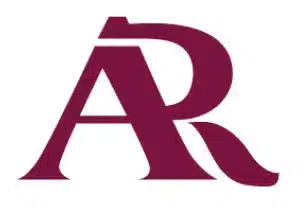Gabapentin Abuse Treatment

Gabapentin Abuse Treatment
Table of Contents
What is Gabapentin?
Gabapentin is a medication meant to help people with epilepsy control seizures. It is under the medication class known as anticonvulsants. Gabapentin decreases the abnormal excitement in the brain caused by epilepsy in order to reduce or treat seizures. It is also used to help with postherpetic neuralgia, restless leg syndrome, chronic pain, and to treat hot flashes due to menopause or breast cancer.
In some cases, gabapentin can be used to treat neuropathic pain associated with the herpes virus or shingles. The Gralise brand is the most common type of gabapentin meant to treat this disorder and is not intended for epilepsy treatment.1
Other Names for Gabapentin
Gabapentin is known by several other brand names, including Neurontin, Gaborone, Gralise, and FusePaq Fanatrex. Gabapentin also comes in several forms such as capsules, solutions, tablets, and suspensions.2
Side Effects of Gabapentin
- Tiredness
- Drowsiness
- Migraines
- Dizziness
- Weakness
- Double or blurred Vision
- Anxiety
- Troubles with memory
- Uncontrollable shaking of a specific body part
- Nausea and Vomiting
- Heartburn
- Dry mouth
- Diarrhea or Constipation
- Weight Gain
- Swelling of Extremities
- Back and Joint Pain
- Increased Appetite
- Fever
- Flu-Like Symptoms
- Ear Pain
- Red or Itchy Eyes
- Seizures
- Difficulty breathing
- Difficulty swallowing
- Hoarseness
- Swelling of the ace
- Itchiness or rash
If you develop any of these symptoms over a long period, you should seek out medical attention right away, especially if seizures, troubles breathing or swallowing, and swelling of the face occur.
Can Gabapentin Be Abused?
Why Is This Drug Abused?
One primary reason gabapentin is abused is that it is not a well-regulated drug. In many places, Gabapentin is not considered a controlled substance.5 It was also the fifth-highest prescribed drug in the United States in May 2017. Gabapentin is readily available and has a variety of uses.
Due to its pain relief qualities and price, it can be an attractive drug of choice. This drug can increase the effects of opioids, which makes it more popular for recreation or self-medication purposes. Moreover, gabapentin abuse can lead to:
- Increased sociability
- Decrease in social anxiety
- Relaxation
- Feelings of euphoria
- A sense of being zombie-like or drowsy
Signs of Gabapentin Addiction
Signs of Gabapentin Overdose
It is possible to overdose on gabapentin. Some of the overdose symptoms include double vision, slurred speech, extreme drowsiness, and diarrhea. If you or a loved one is taking gabapentin and displays these symptoms, it is important to seek medical help right away.
Gabapentin Withdrawal Signs and Symptoms
Gabapentin withdrawal can start as early as twelve hours after stopping the medication. For some people, it takes a full week to begin experiencing withdrawal symptoms.7 Most people will see symptoms within one to two days.
Although it is rare to see withdrawal symptoms while only using gabapentin, symptoms become more common and severe when gabapentin is mixed with other substances.
Some of the main symptoms associated with gabapentin withdrawal include:7
Agitation
Confusion
Disorientation
Tremors
Sweating
High blood pressure
Insomnia
Increased heart rate
Gastrointestinal symptoms
The return of pre-existing conditions
Many individuals will enter gabapentin withdrawal without intentionally trying to quit the drug. It can occur due to a lapse in prescription or forgetting to bring it. Even though there still is a lack of research on the topic, it is important to be aware of the different risks.
In many cases, people will see a return of pre-existing conditions. This factor is especially true for people who struggle with mental health issues like bipolar disorder, depression, and psychosis, as well as people that struggle with epilepsy. Those who suffer from chronic pain will most likely see a return of that pain as well.7
Treatment for Gabapentin Withdrawal
The first few days of gabapentin withdrawal can be very intense. It is best to seek professional help during this process. Treatment facilities and doctors are the best resources to deal with withdrawal.
Tapering Off
Most doctors will not have a person stop using the drug cold turkey. Instead, they will taper off use. Tapering is when a doctor slowly lowers the amount of a prescription over a period to ease symptoms of withdrawal. Tapering is extremely common, and most doctors and treatment centers will try this strategy.
Replacement Drugs
For people who struggle with pre-existing health conditions like seizures or chronic pain, a doctor might replace the use of gabapentin with another drug. Depending on the condition, a doctor might transfer the patient onto antidepressants, other anti-seizure medication, or other pain relievers.8
Inpatient Treatment
Going to an inpatient treatment facility is best for someone struggling with addiction. Inpatient care is where someone stays in a facility for a few days or few months to work on recovery. Inpatient treatment facilities provide medical professionals and licensed therapists that help each patient along the way when dealing with gabapentin withdrawal.
Outpatient Treatment
With outpatient care, clients will spend about ten hours a week visiting a treatment facility in their local area. This treatment is best for people who only experience moderate withdrawal symptoms. These programs can last a few months to over a year. To find out what treatment option is right for you, make sure to talk to your doctor.Therapies for Gabapentin Addiction
Treatment facilities might also use different kinds of therapy. Doctors will lean more into therapy when someone needs to find the root cause of addiction and work on a change in addictive behaviors.
Cognitive-Behavior Therapy
Cognitive-behavior therapy is a form of talk therapy. The person struggling with gabapentin misuse would see a professional counselor so they can become aware of different forms of thinking and different ways they could respond to difficult situations in everyday life.9
Dialectical Behavior Therapy
Dialectical behavior therapy might be used for someone struggling with gabapentin abuse by teaching them how to “live in the moment, develop healthy ways to cope with stress, regulate their emotions, and improve their relationships with other.”10
Mindfulness Therapy
Mindfulness therapy zones in on teaching skills to help a patient recognize what is happening inside of them. Mindfulness helps people to slow down and focus on healthy coping mechanisms while dealing with emotional or physical pain from gabapentin withdrawal.10
Motivational Interviewing
Motivational interviewing focuses on empowering people to change from inside themselves. This form of therapy believes that everyone holds the power to change. The therapist becomes a guide to help the patient learn about themselves through good listening and directing skills. The end goal is for the client to go through a natural process of change at their own pace.
Group Therapy
Group therapy can be popular within rehab facilities. During group therapy, people will learn behavioral skills through homework assignments and role-playing a different way of interacting with one another. This therapy can also be a great time to talk about life experiences.
Resources
- https://www.drugs.com/gabapentin.html
- https://www.mayoclinic.org/drugs-supplements/gabapentin-oral-route/description/drg-20064011
- https://medlineplus.gov/druginfo/meds/a694007.html
- https://pubmed.ncbi.nlm.nih.gov/27265421/
- https://www.statnews.com/2017/07/06/gabapentin-becomes-target-of-opioid-abuse/
- https://pubmed.ncbi.nlm.nih.gov/27323794/
- https://www.verywellmind.com/gabapentin-withdrawal-symptoms-timeline-and-treatment-4176217
- https://druggenius.com/alternatives/gabapentin/
- https://www.mayoclinic.org/tests-procedures/cognitive-behavioral-therapy/about/pac-20384610
- https://www.verywellmind.com/dialectical-behavior-therapy-1067402















